Nuances
Long Long ago in Indrani Pargana …
In the lush, verdant forests of ancient India, under the dense canopy where sunlight played hide and seek, two figures stood facing each other, tension crackling between them like static before a storm. Arjun, a young and earnest scholar of the arcane, was in deep conversation with Maya, an old wise woman known in her village as the keeper of stories.
“Maya,” Arjun began, his voice laced with curiosity and a hint of confusion, “I’ve come across something in the ancient texts that puzzles me. Are Danavas the same as Asuras, or are they different?”
Maya, her face etched with the wisdom of years and her eyes twinkling with the mischief of knowledge, smiled gently. “Ah, that’s a question that even the sages would delight in debating. You see, Arjun, while many use the terms Danava and Asura interchangeably, there’s a nuance to them that’s often overlooked.”
Arjun leaned in, his interest piqued. “What kind of nuance?”
“Well, think of it this way,” Maya explained, her voice calm and instructive. “Imagine a large family tree, with branches sprawling far and wide. The Asuras are like the main trunk of this tree—broad and encompassing. They are powerful beings, often seen as adversaries to the gods, the Devas. Asuras are known for their strength, their magic, and sometimes, their ruthlessness.”
Arjun nodded, absorbing every word.
“Now, the Danavas,” Maya continued, pointing upwards as if visualizing the tree, “are like a specific branch on that tree. They come from a particular lineage, descendants of Danu, who was one of the daughters of Daksha. Danu married the sage Kashyapa, and their children are what we call Danavas. They share many qualities with the Asuras, like their strength and magical abilities, but they have their own unique traits and stories.”
“So, all Danavas are Asuras, but not all Asuras are Danavas?” Arjun asked, trying to fit the pieces together.
“Exactly!” Maya exclaimed, pleased. “You’ve grasped it beautifully. The Danavas are a part of the greater Asura family, but they have their own distinct identity and heritage.”
Arjun’s face lit up with understanding. “That makes so much sense now. So when I read the stories, I should keep in mind which lineage they belong to, to fully understand their actions and motives?”
“Right again,” Maya affirmed. “Knowing their roots helps you understand their nature and their choices in the tales of yore. It’s like knowing someone’s family history; it gives you insight into why they might act a certain way.”
The air around them felt lighter, the knowledge shared bringing a sense of closeness. Arjun, now clearer in his understanding, felt a renewed passion to delve deeper into the ancient lore, and Maya, ever the teacher, was delighted to have kindled the flame of curiosity in yet another heart.
As they parted ways, the forest seemed to whisper secrets of its own, the leaves rustling with stories of gods and demons, waiting for those keen enough to listen and learn. The conversation between Arjun and Maya was just the beginning, a doorway to the vast and intricate world of mythological epics that still had many tales to tell.
Encampment
1756, Katwa
In the shadowy depths of a forest in Bengal, near the meandering River Kandor, Captain Henry Whitmore and his English soldiers were encamped beside an ancient, abandoned village. The year was 1756, and the thick foliage of the jungle whispered secrets of the land. The river, which split around a forsaken Kali temple, seemed to mirror the division within the men’s hearts.
Captain Whitmore, a stern yet fair leader, called his men to gather. “Men,” he began, his voice carrying over the rustling leaves, “we’ve received reports of disturbances in this region. We must investigate and secure any resources that could be advantageous to us.” His eyes swept over his loyal soldiers, hardened men accustomed to the challenges of colonial life.
As the soldiers ventured into the eerie silence of the village, they stumbled upon signs of a massacre. The remnants of rituals—blackened circles of ash, fragments of bone, and withered flowers—were strewn about. Sergeant Collins, Whitmore’s trusted aide, motioned to the men to collect anything of value.
Their scout, Morris, a sharp-eyed young man, deduced the direction in which the perpetrators had vanished. “They headed towards the temple,” he whispered, pointing to the path cleaved by the river.
Believing the culprits might be hiding there, Whitmore ordered his men to follow. He then shot a green flare into the sky, signaling the other squads to converge. Collins, uneasy, questioned the decision to spread their forces thin. “Why separate, sir? Isn’t that risky with unknown dangers lurking?”
Whitmore, pausing to reload his pistol, explained, “The order from Major Bancroft was clear—cover more ground quickly. He believes we’re each capable of handling whatever we encounter.”
Monstrosities
Captain Henry Whitmore and his platoon, composed of 60 English soldiers, approached an abandoned Kali temple shrouded in mist and legends. Their mission was unclear, tinged with the eerie feeling of stepping into a realm that wasn’t meant for mortals.
As they approached the temple, the air turned unnaturally cold, and a deep, sinister silence enveloped them. Suddenly, a ghastly shriek split the night, piercing the quiet with its terror. Emerging from the shadows, creatures of formidable size and dread appeared, as if born from the darkest pits of Hindu mythology. These demons, a terrifying blend of horror and allure, possessed the bodies of massive spiders, each one dwarfing an average human in size.
Instead of faces, these colossal arachnids bore the torsos of beautiful women, naked yet modestly draped with leafy vines. Their heads were adorned with twisted goat horns, and their mouths—far too wide—were filled with dagger-like teeth, ready to strike fear into the hearts of all who beheld them.
The soldiers, though battle-hardened, froze momentarily, their blood chilling at the sight of these monstrous beings. Captain Whitmore, his voice firm despite the terror clawing at his spine, ordered, “Ready arms! Fire at will!”
Private Jenkins, standing to the right of the formation, was the first to regain his senses. He lifted his musket, aiming shakily at the nearest creature. The beast moved with unnatural swiftness, its many legs clicking and scraping as it advanced. Jenkins fired, but his shot went wide, only enraging the creature further.
With a horrifying screech, it pounced, its legs ensnaring him as one of its grotesque, human-like hands reached out, claws sinking into his flesh. Jenkins screamed as the creature drew him in, its massive teeth closing over his head, crushing it with a sickening crunch. His body fell limp, dropped to the ground like a discarded doll.
Sergeant Holloway, a grizzled veteran, witnessed Jenkins’ fate and roared in rage and fear. Brandishing a bayonet, he charged, hoping to save his comrades from a similar end. As he stabbed at one of the demons, the creature caught him by the arm, its strength immense. With a swift movement, it twisted his arm until bones snapped audibly, then pulled him in, biting deep into his shoulder. Holloway’s agonized cries echoed through the trees as the creature tore him apart, blood spattering the undergrowth.
Corporal Easton, young and terrified, found himself backed against the temple wall. As he tried to reload, a creature silently approached from behind. Before he could turn, it wrapped its limbs around him, lifting him off the ground. Easton gasped, struggling as the creature’s teeth sank into his torso, ripping through his uniform and flesh with horrifying ease. His screams pierced the night until they abruptly stopped, his body going slack as the life was brutally drained from him.
The battle raged on, chaotic and brutal. Captain Whitmore and the remaining men fought desperately, their muskets and bayonets barely keeping the nightmarish creatures at bay. By dawn, the forest floor was littered with the bodies of men and monsters alike. Only 13 soldiers survived, their minds scarred by the horrors they had witnessed.
As the survivors gathered, their faces ghostly pale and their uniforms stained with blood—both their own and that of their foes—Captain Whitmore looked over his shattered platoon. The night’s events had changed them all, binding them with a grim camaraderie born of shared terror and sorrow.
“We’ll make camp here,” Whitmore’s voice was hoarse, his usual command tone broken by grief. “Rest now. We mourn our dead at first light, and then we move on. We must carry the tale of this night, lest their sacrifices be in vain.”
The survivors nodded, their expressions haunted as they settled amidst the ruins and the dead, the first light of dawn doing little to warm the chill that had settled deep in their bones.
Lineages
Arjun, notebook in hand, was ready with questions that had puzzled him since his last visit. The first one poured out eagerly, “Maya, if Narakasura’s father was Varaha, an avatar of Vishnu, and his mother was Bhudevi, the earth goddess, why is he called an ‘asura’? Shouldn’t his divine lineage make him a god?”
Maya smiled gently, her eyes reflecting the depth of her wisdom. “Arjun, in our myths, lineage does not solely determine one’s nature. ‘Asura’ in ancient texts often refers to those with certain qualities or behaviors. Narakasura, despite his noble birth, exhibited traits like arrogance and cruelty, which are often associated with ‘asuras’ in our stories. It’s his actions and choices that define him, not just his parentage.”
Arjun nodded, scribbling down her words, then quickly moved on to his next question.
Maya listened intently to Arjun’s further pondering on the figure of Narakasura, reflecting the depth of his engagement with the story.
“I also heard that Narakasura had 16,000 daughters. Why specifically 16,000? Could it be,” Arjun mused, “that he called all women of that age his daughters? And we often say history is written by the victors—what if Narakasura was not the villain he’s portrayed to be?”
Maya nodded appreciatively at his thoughtfulness. “You bring up a very important point, Arjun. The number 16,000, like many numbers in our epics, is symbolic and should be seen in a metaphorical light rather than literal. It might represent the vastness of his kingdom or influence, or perhaps the number of followers he had.”
She continued, “As for your question about history’s portrayal of Narakasura, that is a wise observation. Stories evolve with time, and the victors of any conflict tend to shape these stories to reflect their views. In many ancient cultures, kings and leaders would often be guardians or father figures to their people, sometimes referring to them as their ‘children’ in a symbolic sense. It’s entirely possible that Narakasura was a benevolent ruler in his time, and the narrative of him as a tyrant was emphasized more by those who defeated him to justify their conquest.”
“Indeed, it’s crucial to question these stories,” Maya added, her voice firm yet gentle. “Asking whether Narakasura was truly a villain or a good man whose story was altered by those who came after him is part of understanding the fuller picture of our past. Every character in our myths can have multiple facets, and each version of a story can give us different insights.”
Arjun listened, his eyes wide with the realization of the complexity and depth that such discussions unveiled. “So, the myths are not just tales from the past but reflections of the values and politics of the times they were written,” he pondered aloud.
“Exactly,” Maya agreed with a smile. “And they evolve with time, gaining new meanings with each generation that retells them. This is why we must look at them with a critical eye and an open mind.”
Satisfied but curious, Arjun ventured further, “And what about Viswakarma and Mayasura? Are they the same?”
“No, they are not the same,” Maya clarified. “Viswakarma is the divine architect of gods, known for his craftsmanship in building divine palaces and weapons. Mayasura, however, is another asura, skilled in magic and architecture but distinct in his deeds and lineage. Both are celebrated for their skills, but their allegiances and roles in myths differ significantly.”
Arjun, intrigued, posed another question, “Why is Hiranyaksha also considered an asura? He was the son of Diti and Kashyapa, too.”
“Indeed, Hiranyaksha is another son of Diti and Kashyapa,” Maya began, her voice taking on a solemn tone. “But like Narakasura, it was his demeanor and choices that defined him. Diti’s children, including Hiranyaksha, often took paths that put them at odds with the Devas and cosmic order, leading them to be categorized as asuras.”
Arjun absorbed her explanations, each answer weaving a clearer picture of the complex tapestry of Hindu mythology. Arjun, with a thoughtful expression shaping his features, posed another intriguing question to Maya, seeking to deepen his understanding of the mythological characters they were discussing. “In the Shivpuran, particularly in the Yudhakhanda section, Biswakarma is referred to as Mayasur. Does this mean that Biswakarma and Mayasur are the same entity, and could this be an example of an asura transforming into a god?”
Maya paused thoughtfully before addressing Arjun’s question. She sat back, her gaze drifting towards the rustling leaves above as if drawing inspiration from the whispering winds.
“In some texts, like the part you mentioned from the Shivpuran, Biswakarma is indeed referred to as Mayasur. This points to an interesting aspect of our mythological narratives—the fluidity of character roles and identities. Biswakarma, widely known as the divine architect of the gods, responsible for creating their weapons and palaces, is revered in many scriptures. Mayasur, similarly, is noted for his architectural genius and his ability to create magical cities and palaces.”
She leaned forward, her eyes locking with Arjun’s, ensuring he grasped the depth of the discussion. “The overlap in their identities in certain texts might suggest a merging of their legends over time, or it might reflect different regional beliefs or the interpolation by later scribes who compiled these texts.”
Arjun nodded, absorbing her explanation. “So, could this be an example of an asura being viewed as a god?” he asked, curious about the transition of a character’s divine status.
“Exactly,” Maya affirmed. “In the cases where Mayasur is identified with Biswakarma, we see a rare example of an asura who is not only not vilified but is celebrated as a divine figure. This shows the complexity of our mythological characters. They are not merely black and white—gods or demons—but have many shades in between. It illustrates how the same figure can be an asura in one context and yet hold a respected divine role in another, challenging the usual dichotomy of good versus evil.”
“This blending of roles,” she continued, “also highlights the cultural and philosophical layers within our myths, reminding us that divinity and demonhood can coexist or even be interchangeable based on the perspectives and the moral lessons being emphasized.”
Arjun was visibly intrigued by the nuances Maya described. “It’s fascinating to see how flexible these stories are, and how they can be adapted or interpreted in various ways depending on the context or the intended audience.”
Maya smiled, pleased with his understanding.
“Thank you, Maya,” Arjun said sincerely. “Every conversation with you adds layers to my understanding of these ancient stories.”
Maya chuckled, her eyes twinkling. “And every question you ask lights up old tales in new ways, Arjun. Keep asking, and keep exploring.”
As the sun began to set, casting long shadows across the forest clearing, their discussion drew to a natural close. Arjun felt a profound sense of gratitude for the insights Maya had shared, realizing that each mythological story held layers of meaning waiting to be uncovered.
As they parted ways, the forest seemed to echo back Maya’s last words, a reminder that stories are living things, growing and changing with each telling, much like the trees around them.
Portal
In the grim aftermath of the night’s terrifying encounter, the surviving soldiers of Captain Whitmore’s platoon worked through their shock and grief to regroup. As the first light of dawn cast eerie shadows across the forest, Private Morris, while scanning the area for any lingering threats, noticed a disturbing silhouette against the morning sky. High above in the twisted branches of an ancient tree hung a body, grotesquely suspended as if it were caught in a gigantic spider’s web.
Summoning the others with a hushed, urgent call, Morris pointed upwards. The men gathered, their expressions a mix of curiosity and dread. Captain Whitmore, his face lined with fatigue, ordered two of his men to retrieve the body. As they carefully cut it down, the eerie silence of the forest was broken by a faint, yet distinct vibrating sound that grew louder as the body neared the ground.
The soldiers stepped back as the corpse, clad in the tattered remains of an East India Company officer’s uniform, hit the forest floor with a soft thud. The uniform is decorated with lots of medals.
“Must be someone important”, Whitmore thought.
The vibrating sound intensified, emanating from the body itself. Horrified, they watched as the deceased’s throat began to undulate unnaturally. With a gruesome inevitability, the skin on the face stretched and tore, and a swarm of tiny spider-like creatures burst forth, scattering in all directions across the damp earth.
The sight was too much for one young officer, who fainted dead away, overwhelmed by the macabre spectacle. The others recoiled in horror, their faces pale and eyes wide with shock. Captain Whitmore, steadying his nerve, stepped forward, his boots crushing some of the fleeing creatures underfoot.
“Secure the area!” he barked, his voice cutting through the panic. “And someone see to him,” he gestured towards the unconscious officer. The men moved quickly, their training kicking in despite the nausea and fear that threatened to overwhelm them.
As the chaos settled, and the last of the spiderlings were dispatched, a heavy silence fell over the platoon. The horror of what they had just witnessed—a man turned into a nest for these monstrous offspring—cemented the dark and supernatural nature of their enemy. It was a grim reminder of the perversion of nature that they had stumbled upon in this cursed place.
Gathering his men, Whitmore’s voice was somber, “We are dealing with forces that defy our understanding of the natural world. Stay vigilant, and let’s keep moving. We can’t let their deaths be in vain.”
The platoon, though shaken to their core, rallied behind their captain, their resolve hardened by the horrors they had survived. They knew the path ahead would be fraught with more dangers, but they were determined to see their mission through, whatever dark mysteries awaited them in the heart of the Bengal forest.
That night, sheltered within the remnants of a once-majestic ghat beside the river, Whitmore and Collins pored over the journal. It belonged to Lieutenant Hawthorne, an occultist who had experimented with dark rituals in an attempt to bend the local will to the English crown.
The rituals, that were meant to explore ancient Indian arcane myths, had instead unleashed these monsters upon the land. Collins, visibly shaken, suggested, “We ought to return with this journal, sir. It could hold the key to stopping these horrors.”
Whitmore, however, knew the risks of their discovery. “If we bring this back, the Company might rather silence us to bury their blunders,” he reasoned with a grim tone. “No, we must continue, find a way to remedy this ourselves.”
As the moon climbed higher, and the sounds of the mouth organ filled the air—played by Corporal Finch to lift their spirits—the group steeled themselves.
Reckoning
A few Hours Later…
In the tense quiet of the encampment near the abandoned Kali temple, Captain Henry Whitmore and Sergeant Collins stood watch under a clear starlit sky. The campfire’s glow cast long shadows across their faces, reflecting the grim determination etched deep within. Suddenly, the distant forest erupted with flashes of gunfire and the thunderous roar of battle, piercing the silence of the night.
Collins turned towards Whitmore, his face illuminated by the intermittent flashes. “Sir, it’s another team! They’re engaging the creatures. We must help them!”
Whitmore sighed heavily, the weight of command pressing down on him. The echoes of gunfire were a harsh reminder of the carnage they had just survived. “Collins,” he said slowly, his voice barely above a whisper, “to go there now—it means certain death. Remember what we just witnessed.”
Reluctantly, Collins nodded, understanding the harsh reality of their situation. The decision to not intervene was agonizing but necessary. They were barely holding their own against the monstrous entities that haunted these woods.
Whitmore turned and quickly made his way back to the makeshift shelter where the remnants of their platoon had gathered. Inside, the somber atmosphere was palpable. Corporal Finch, who had been playing a melancholy tune on his mouth organ to soothe the frayed nerves of his comrades, had stopped. The notes faded into silence as all eyes were fixed on Whitmore, searching his face for a sign of what was to come.
The captain looked around at his men, their faces etched with fear and fatigue. “We hold our position,” he announced firmly. “We stay vigilant and we survive the night. Our brothers out there,” he gestured towards the direction of the gunfire, “are fighting their own battle. We must be ready to face ours here.”
The soldiers nodded, understanding the grim logic in Whitmore’s words. The harsh truth of their survival was that they could not afford to lose more men in a reckless attempt at heroism.
As Whitmore finished speaking, Finch picked up his mouth organ again, the notes now slower and more reflective, mirroring the somber mood. The men settled into a watchful silence, each lost in his thoughts, yet united in their vigilance. The night stretched on, filled with the haunting sounds of Finch’s playing and the distant echoes of the ongoing battle, a stark reminder of the peril just beyond the trees.
As the staccato bursts of gunfire in the distance slowly turned into panicked screams, an unsettling silence fell over the forest.
Corporal Finch, who had been trying to provide some semblance of comfort through the soothing sounds of his mouth organ, suddenly stopped playing. His hands trembled as he lowered the instrument, the metal catching the faint glow of the campfire. The cheerful notes that had floated through the air moments ago now seemed like a distant memory, replaced by a suffocating fear that gripped his chest, stealing his breath.
The men looked around at each other, each face reflecting the terror that they all felt. The forest, which had been alive with the echoes of conflict, was now eerily silent, as if holding its breath. The abrupt end to the noise was more terrifying than the sounds of battle; it was as if the earth itself had swallowed all life beyond their small circle of light.
Captain Whitmore stepped forward, his figure authoritative yet reassuring. “Stay alert,” he whispered, his voice cutting through the silence. “Whatever happened out there, we need to be ready for what might come next.”
The soldiers nodded, gripping their weapons tighter. The realization that the other team might have been overrun was a chilling prospect. Each man’s mind raced with the possibilities of what horrors might now be heading their way. They positioned themselves back-to-back, forming a tight circle around the flickering fire, their eyes scanning the dark, dense undergrowth that surrounded them.
Finch, trying to steady his nerves, wiped the sweat from his brow and glanced at his mouth organ still warm from his touch. The instrument, usually a source of comfort, now lay beside him, silent and inert. He knew that any sound could betray their position to whatever lurked in the shadows beyond.
The night dragged on, each minute stretching into what felt like hours. Every rustle of leaves, every snap of a twig, caused the men to tense, their hearts pounding loudly in their chests. They were soldiers, trained for combat, but this night tested their courage in ways they had never imagined.
The resolve to protect one another and to survive until dawn became the unspoken vow among them as they waited through the long and uncertain night.
Cosmology
Beneath the generous shade of the ancient banyan tree, Arjun and Maya sat overlooking the confluence of the Ajay and Ganga rivers. The flowing waters seemed to whisper secrets of unseen worlds, perfectly setting the stage for their discussion on the intricate cosmology of Hindu mythology.
“Maya,” Arjun began, his curiosity piqued by the texts he had recently encountered, “I’ve read about the fourteen Lokas. Can you explain more about them, especially Rasatala-loka? It’s described as a kind of prison, seldom mentioned in the Puranas, and said to be the most inaccessible and dangerous of all.”
Maya nodded, her eyes reflecting the depth of knowledge she was about to share. “Indeed, Arjun. The Lokas are not just realms but states of existence, each with its own purpose and nature. Above us, there are seven higher worlds including Satyaloka, where truth and enlightenment reign. Below us, there are seven lower worlds, among which Rasatala stands out for its notorious reputation.”
She leaned back slightly, her eyes reflecting the gravity of the subject. “Imagine a vast, shadowy realm, bound by magical constraints that are as strong as the most potent spells known to the sages. In Rasatala, the very air is thick with enchantment, designed to suppress the powers of its inhabitants—mostly Daanavs and Daityas, the demonic beings who have defied the gods.”
Arjun listened, visualizing this dark, enchanted realm. “So, it’s a place where these beings are kept away from the other worlds to prevent them from causing havoc?”
“Exactly,” Maya confirmed. “It’s like a fortress, but one that’s alive with magical energies. The barriers are not just physical; they are crafted from ancient enchantments that neutralize the powers of its prisoners. The conditions there are harsh, a constant reminder of the consequences of defying divine laws.”
Arjun’s fascination grew as he pondered the implications. “And is it true that this place is rarely discussed in the Puranas or Vedas? Why is it so shrouded in mystery?”
Maya nodded solemnly. “It is mentioned, but not as frequently as other Lokas. The sages who wrote the texts perhaps chose to keep some knowledge hidden, maybe to prevent misuse or maybe because the very nature of Rasatala is so daunting and complex that it was beyond regular understanding. The mysteries of Rasatala are not for the faint-hearted, and its truths are guarded, accessible only to those with the wisdom to handle them responsibly.”
Arjun listened intently, visualizing the complex structure of worlds stacked above and below each other. “And these Lokas, they interact with our world in any way?” he asked, seeking to understand the connection between the celestial and the earthly.
“That’s a fascinating aspect,” Maya replied, gesturing towards the flowing rivers. “Ganga rivered is believed to act as portals between these Lokas.”
Looking thoughtful, Arjun added, “And our village, Indrani Pargana, by the Ganga—does it hold a special significance in this cosmic map?”
Maya smiled, pleased with his question. “Yes. Indrani, the queen of the gods, is said to have used this very spot to traverse from Swargaloka, making our village more than just a point on the earth. It’s a node in the cosmic network, a gateway between the divine and the mortal.”
Arjun, with a spark of curiosity in his eyes, leaned in as Maya spoke of Indrani, the queen of the gods.
“Indeed, Arjun,” Maya continued, her voice imbued with a reverence that matched the sacredness of the site. “Our village, Indrani Nagar, is said to have been created by Indrani herself.”
Arjun, absorbed by the idea, glanced towards the temple that stood solemnly by the river’s edge. “So, the temple by the Ganga,” he mused, “it’s more than just a place of worship?”
Maya nodded, her eyes reflecting the glow of the dying light. “Exactly. That temple is believed to be a direct portal. It’s said that Indrani comes out from there, traversing from Swargaloka to our world. The positioning of the temple by the river Ganga is no coincidence. “
Arjun’s gaze drifted to the temple again, seeing it in a new light. “That’s incredible, Maya. To think that we live in a place where the veil between worlds is thin, where the divine can literally walk into our realm…”
“It’s a blessing and a responsibility,” Maya added, her tone somber yet filled with pride. “It means that our actions here resonate not just on earth but possibly echo across the lokas. It’s why our festivals and rituals hold such profound significance, why we treat the river and temple with great respect. They are not just symbols; they are active parts of the cosmic machinery.”
Arjun felt a chill of awe as he looked at the flowing waters anew, seeing them not just as rivers but as pathways to other realms. As they sat there, the sun began to set, casting golden hues across the river, blurring the lines between the earth and the sky, the material and the mystical.
“So, if someone truly wanted, could they use this portal of the temple to visit Patala, the Nagaloka?” Maya smiled at Arjun, a knowing twinkle in her eye, but she chose not to answer.
As the distant sounds of the aarti began to waft through the evening air, Maya stood up. She is in charge of prasad (offering) distribution in the temple.
“I must be going now,” Maya announced, her voice reflecting a calm resolve. “The temple needs attending to during the aarti, and I need to ensure that everything is in order.”
Arjun looked up at her, his respect deepening.
“Thank you, Maya,” Arjun said sincerely. “For sharing your wisdom and for taking such good care of our temple.”
Maya walked toward the temple, her figure gradually blending with the fading light as she moved with purposeful strides.
The sounds of the aarti grew louder, filling the air with a spiritual resonance that seemed to vibrate through the very ground. Arjun sat back down, letting the sacred chants envelop him. The river, a silent witness to their conversation, flowed on—its waters carrying the echoes of their discussion downstream, reminding Arjun of the eternal flow of life and the endless journey of the soul through the cosmos.
Convergence
As the first faint light of dawn began to penetrate the thick darkness of the forest, Captain Whitmore gave the order to move out. The soldiers, weary yet resolute, quickly packed their gear and formed a tight column. With a shared sense of urgency, they marched toward the Kandor River, a mere trickle compared to the mighty rivers they knew back home, but it was rumored among the locals—and now fervently hoped by the soldiers—that the nightmarish creatures haunting them did not cross water.
The Kandor was more a wide drain than a river, its banks overgrown with weeds and the water flowing sluggishly toward the larger Ajay River. This slight stream was to be their pathway to safety. As they approached the water, the early morning light filtered through the trees, casting long shadows and playing tricks on their eyes. Every rustle in the undergrowth seemed to signal danger, but the real threat lay behind them, lurking in the dark recesses they had just vacated.
“Keep your eyes open and stay close,” Whitmore instructed, his voice low but clear. The men nodded, understanding the gravity of their situation. They stepped into the shallow water of the Kandor, the coldness of it a sharp contrast to the sweat and grime that coated their skin. The river’s bottom was muddy, sucking at their boots, making their progress slow and laborious.
They trudged through the water, the sounds of the forest waking up around them. Birds chirped hesitantly, as if unsure whether the dawn truly meant the departure of the night’s horrors. The soldiers’ eyes darted around, watching for any movement, any sign that they were not yet free of danger.
The journey seemed endless, each step fraught with tension, but gradually the Kandor widened as it merged with the Ajay River. There, to the immense relief of the men, a boat awaited them, swaying gently with the current.
It was a simple vessel, large enough to carry them but hardly a warship. Yet, in their eyes, it was as grand as any navy flagship, a promise of escape and survival.
Captain Whitmore was the last to climb aboard, making sure each of his men was safely on deck before he finally allowed himself a moment to relax the iron grip he had kept on his emotions. “Set off, and let’s make for home,” he said to the boatman, his voice carrying a mixture of fatigue and the unspoken hope that the worst was behind them.
As the boat glided smoothly towards their rendezvous point, Captain Henry Whitmore finally allowed himself a moment of respite. He reached into his coat, pulling out the waterlogged journal they had found on the frozen body of the fallen soldier near the ancient temple. The cover was worn, the pages swollen with moisture, but the writing, though smudged, was still legible in parts.
Captain Whitmore carefully opened the journal, his fingers gently turning the fragile pages. The entries were erratic, a mix of mundane camp life and chilling entries that hinted at the dark experiments and rituals attempted to subdue and control the local populace through supernatural means.
“Assam,” Captain Whitmore murmured, his eyebrows becoming furrowed as he read the name scrawled across a particularly weathered page of the journal.
Unveiling
When Captain Henry Whitmore first arrived in Bengal in the mid-1700s, he was immediately struck by the stark contrasts between this lush, vibrant land and his native England. The abundance of food, the endless stretches of water, and the thriving local communities were a sharp departure from the scarcity and struggle often found back home. But what truly astonished him was the local approach to health and disease.
In Europe, diseases like smallpox and malaria ravaged populations with no effective remedies available. Treatments were rudimentary and largely ineffective, leading to widespread fatalities. In contrast, Whitmore observed that in Bengal, these ailments, while present, were managed with surprising efficacy using traditional Indian medicine practices, particularly those involving herbs and specific dietary regulations managed by local priests and healers.
This revelation was both intriguing and unsettling to Whitmore. He noted how priests used a combination of medicinal herbs, prayers, and what he perceived as mystical rituals to treat illnesses that were deemed incurable in Europe. This deep-seated knowledge of natural medicine, combined with spiritual practices, often led to recovery rates that baffled him.
His curiosity piqued, Whitmore dived deeper into the local customs and practices. It was during this exploration that he first encountered the practices of tantra and other esoteric rituals.
He theorized that if such practices could be harnessed and controlled, they could be a potent tool not just for healing, but for exerting influence and control over the populous regions of Bengal.
As he stood at the bow of the boat, watching the shore approach, Whitmore’s resolve hardened. He had never disclosed the full extent of his orders to his regiment because he knew the supernatural elements intertwined with their mission would stir a fear even greater than the enemy they faced regularly. Hawthorne’s obsession with power and control through the arcane had led him down a path that twisted his purpose and his sanity.
Anyways, Driven by this ambition, Whitmore took a decisive step by appointing Lieutenant Hawthorne, an officer with a known interest in the occult, to explore these dark rituals further. However, as Hawthorne’s experiments began to spiral out of control, Whitmore realized the potential dangers of venturing too deeply into these ancient arts without the proper reverence and understanding.
Now, with Hawthorne gone and the situation escalating into chaos, Whitmore knew he had to intervene directly.
Allegories
As the boat slowly drifted down the river, the quiet hum of the water against its sides mingled with the deep, resonant chanting of the majhi. Captain Whitmore, still clutching the weathered journal, listened intently, his thoughts interrupted by the unfamiliar yet strangely compelling verses.
“द्वितीयं तु भवायास्य रसातलगतां महीम् । उद्धरिष्यन्नुपादत्त यज्ञेशः सौकरं वपुः ॥” (Dvitiiyam Tu Bhavaaya-sya Rasaatala-Gataam Mahiim | Uddharissyann-Upaadatta Yajnyeshah Saukaram Vapuh ||”)
“What is the meaning of this mantra?” Whitmore asked, turning towards the majhi. He is always curious about the local customs.
“I heard Varaha is an avatar of Vishnu,” he commented, recalling the versions of the myth he had encountered in his readings.
Majhi chuckled softly, his voice carrying a note of gentle correction mixed with respect. “The story of hunting would have been told differently if the lion had learned how to write the story,” he mused. “In the Rigveda, Matsya, the fish, Kurma, the tortoise, and Varaha, the boar, are always described as forms of Brahma. The Rigveda does not hint at the classical legend of the rescue of the earth by the boar; in a later tradition, it is described as a form of Vishnu.”
“Rescue Earth?” Whitmore echoed skeptically, his tone betraying his disbelief.
“You are a military man. You must understand the power of allegory,” Majhi responded, his voice steady and commanding. “There was a fierce battle in ancient days, in the realm of Rasatala Lok. The woman central to this tale was Vasundhara, also known as Bhumi. The meaning of the name is “Earth” only. She belonged to an ancient tribe, beings with four arms, unlike us. This entire saga revolves around her abduction.”
Majhi paused. “She was wed to Varaha. Hiranyaksha is Varaha himself. Hiranyaksha means golden-eye. He had golden eyes and four arms as well. Due to his long teeth resembling tusk, He is also called as Varaha. It’s said that Indra killed Varaha, and Vishnu brought the slain boar as a sacrificial offering to the gods.”
The Majhi’s eyes burned with a fervor that suggested he was recounting not just tales passed down through generations, but events he has lived himself. He is telling the stories like those were ancient kings and queens of an ancient race rather than any God or Asura. The old man’s muscles tightened as he spoke, adding a vivid authenticity to his words.
The majhi’s eyes burned with a fervor that suggested he was recounting not just tales passed down through generations, but events he felt deeply connected to. The old man’s muscles tightened as he spoke.
Whitmore, taken aback by the majhi’s intensity, reevaluated the man before him.
“I have never seen you before,” Whitmore remarked, noting the majhi’s commanding presence.
“The previous majhi caught a cold in last night’s storm. I am his father,” the majhi replied, a hint of a smile playing around his lips as if amused by the turn of fate that brought him to guide the foreign captain.
“And what is your name?” Whitmore asked, his respect for the majhi growing.
“Arjun,” the majhi responded, his voice carrying the weight of the name borne by warriors and heroes of lore.
Whitmore nodded, a silent acknowledgment of the strength and reliability the name suggested. “Arjun,” he repeated. As the boat gently cut through the waters, Whitmore’s thoughts drifted towards his next destination—Assam.
To be continued …

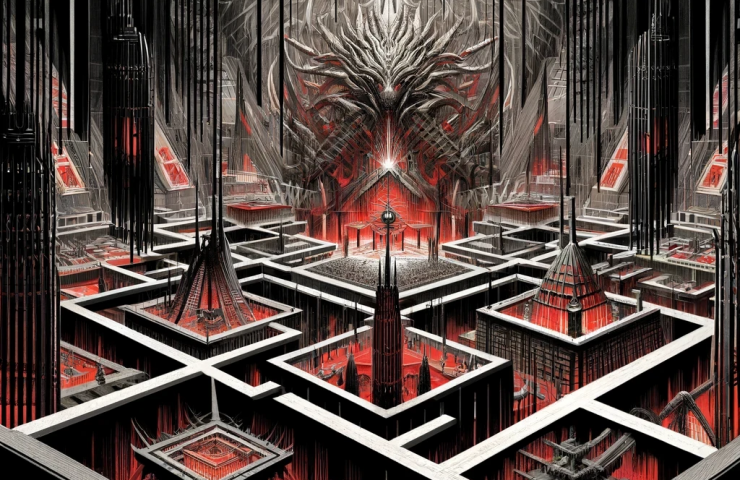
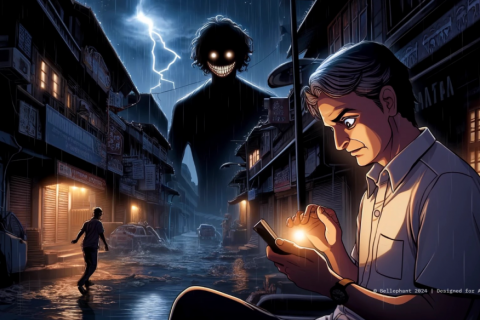
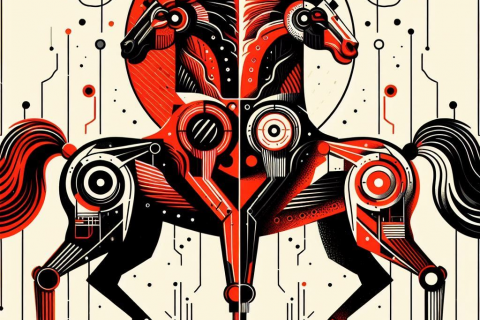








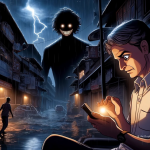
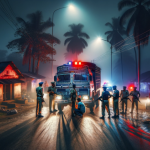
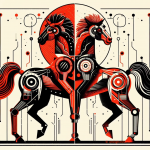
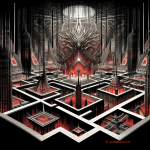
Leave a Reply